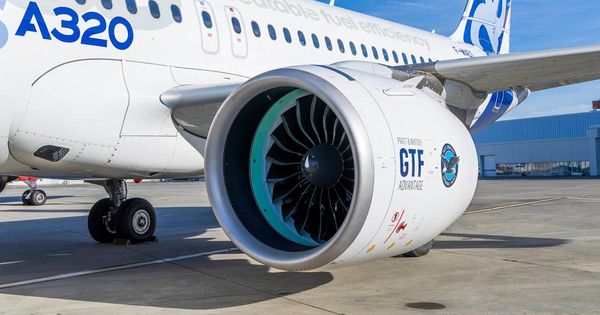After a recent glitch with the pilot scheduling system, American Airlines has offered to pay 200%, tripling pay for pilots covering dropped flights. The glitch, which allowed pilots to drop a total of 12,000 scheduled flights over the month of July, caused the airline to negotiate terms with the Allied Pilots Association (APA) to fill lost segments. In a statement made by the union: "APA steadfastly maintains that management had no right to add trips to pilot's schedules. That noted, with a deal now in place, pilots who had trips placed on their schedules as a result of the snafu should fly those trips. Pilots who still desire to drop or trade these trips may do so using normal trip-trading tools."

An American Airlines spokesperson claimed that the airline is still investigating the reason behind the glitch and ongoing scheduling issues, but an APA spokesperson has identified that the airline's scheduling issues have been responsible. Dennis Tajer, APA spokesperson and American pilot, has shared the negotiations between American executives and the union have been helpful to recover from these issues:
"You had a system under duress already without enough pilots. This IT failure would have caused problems for the month of July if nothing had been done. We're cautiously optimistic that Mr. Isom (American CEO) sees the value in working with us" said Tajer.
The APA and American Airlines have been in contract negotiations since 2019, but these talks have derailed since the pandemic. In the meantime, pilots have been working under 2015 contract terms that had been set to be renegotiated in 2020. In the most recent contract proposal, American Airlines committed to providing pilots with a 17% wage increase of up to $64,000 in efforts to relieve stressful working conditions and maintain pilot retention. The airline has also offered permanent double-time pay for pilots flying during peak days (which tend to be holiday travel periods).

Outside of American Airlines, the industry continues to feel the effects of pilot and airport staff shortages. Delta (ALPA), Alaska, and Southwest (SWAPA) pilot unions have protested due to poor working conditions and fatigue; while United has publicly called for the federal government to step in to aid pilot shortages. Air traffic controllers, airport operations, and TSA shortages have affected the entire industry - everything from canceled flights to lost bags. Among other regional airlines, American Airlines' subsidiaries have canceled regional routes due to pilot shortages, causing the airline to ground over 100 regional aircraft.
Air France Flight Drops Nearly 4,000 Feet Per Minute, Diverts to Lyon » Wizz Air Dominates London Luton with TUI Slot Acquisition » End of an Era: JetBlue's Farewell to the Embraer E190 »
Comments (0)
Add Your Comment
SHARE
TAGS
NEWS American Airlines Pilot Shortage Pay Raise CancellationsRECENTLY PUBLISHED
 GlobalX Secures Rare Authorisation to Operate Intra-Canada Charter Flights
Global Crossing Airlines Group, Inc. (GlobalX) has achieved a significant regulatory milestone in its northern expansion strategy. The Canadian Transportation Agency (CTA) has officially granted the Miami-based operator authorisation to conduct intra-Canada charter flights, a permission rarely extended to U.S. carriers.
NEWS
READ MORE »
GlobalX Secures Rare Authorisation to Operate Intra-Canada Charter Flights
Global Crossing Airlines Group, Inc. (GlobalX) has achieved a significant regulatory milestone in its northern expansion strategy. The Canadian Transportation Agency (CTA) has officially granted the Miami-based operator authorisation to conduct intra-Canada charter flights, a permission rarely extended to U.S. carriers.
NEWS
READ MORE »
 GTF Storage Crisis Deepens: 835 Aircraft Grounded as Pratt & Whitney Recalls Surge Post-Mid-Year
The operational crisis surrounding the Pratt & Whitney Geared Turbofan (GTF) engine family has reached a new peak. As of late Q4 2025, the number of stored jets powered by the PW1000G family has climbed significantly, highlighting a widening gap between maintenance capacity and the relentless pace of engine recalls.
INFORMATIONAL
READ MORE »
GTF Storage Crisis Deepens: 835 Aircraft Grounded as Pratt & Whitney Recalls Surge Post-Mid-Year
The operational crisis surrounding the Pratt & Whitney Geared Turbofan (GTF) engine family has reached a new peak. As of late Q4 2025, the number of stored jets powered by the PW1000G family has climbed significantly, highlighting a widening gap between maintenance capacity and the relentless pace of engine recalls.
INFORMATIONAL
READ MORE »
 Ryanair to Appeal $302 Million Italian Fine Over Alleged Travel Agency Restrictions
Ryanair has announced its intention to challenge a €255.8 million ($302 million) fine imposed by Italy's competition authority, which accused the airline of obstructing travel agencies and online booking platforms from selling its flights.
NEWS
READ MORE »
Ryanair to Appeal $302 Million Italian Fine Over Alleged Travel Agency Restrictions
Ryanair has announced its intention to challenge a €255.8 million ($302 million) fine imposed by Italy's competition authority, which accused the airline of obstructing travel agencies and online booking platforms from selling its flights.
NEWS
READ MORE »



